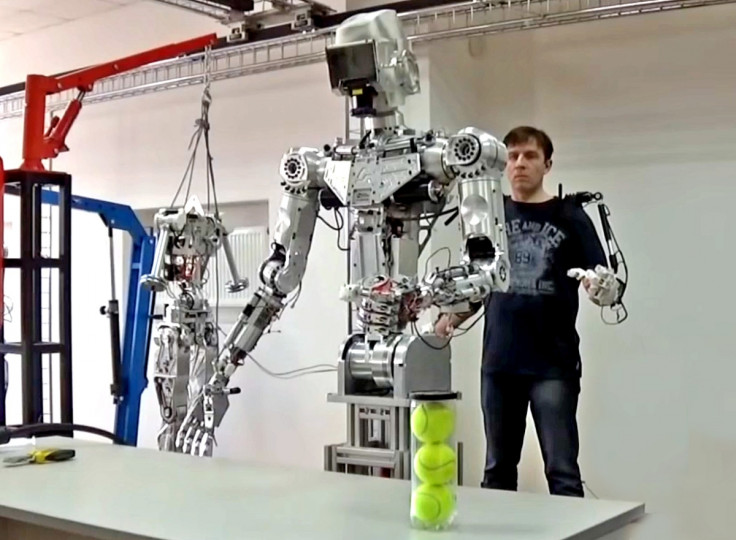Russian military developing humanoid robot to tackle dangerous jobs in outer space

Rather than risk the lives of their astronauts, Russian government scientists are now working to develop humanoid robots that can perform complex tasks on the outside of the International Space Station (ISS) while astronauts control them safely from within the station.
The Russian Foundation for Advanced Research Projects, which is the Russian military's research arm, unveiled two prototype robot astronauts on Saturday 13 February to the media ahead of a robotics exhibition in Moscow that is open to the public.
One of the robots, named Fyodor, has a torso and two arms, and it is programmed to either copy the actions of an astronaut, be remotely controlled by a human wearing a special suit, or to work autonomously.
"It has no 'human factor': it never gets distracted, never gets ill, has no emotions and always focuses on the task," Saviour robotic programme director Sergey Khurs told Russian news site Vesti.
Russia's new robotic crew member on the ISS
Fyodor is operated in real time by a human in collaboration with computer software. So far, the robot is already able to successfully drive a car while recognising road boundaries and other vehicles on the road. Next, the roboticists want it to drive a car and reach its destination with no human intervention at all.
At the moment, astronauts are not allowed to perform space-walking missions that last for longer than eight or nine hours, but a robot could be deployed for a much greater length of time with much less risk to human life.
"We've launched work to create an avatar that will become a crew member of the Russian national orbital station," Russia's deputy prime minister Dmitry Rogozin said at the press conference. "We believe humanoid robots with synthetic vision and AI in perspective is not a fairytale."
Russian army developing aim, shoot and 'Iron Man' communications systems
The other robot prototype on show is a full anthropomorphic platform that controls the robot's movements by coordinating manipulators, kinetics and equilibrium, and is even able to resume a vertical position if the robot falls.
According to Vesti, the Russian military is currently working on a great many high-tech inventions that will likely remain classified, but it is known that the Fyodor robot is also being developed to help soldiers deal with threats remotely, such as shooting down enemy drones.
The Russian military has clearly taken an interest in improving its soldiers' capabilities, as the roboticists also showcased a new exoskeleton suit that aims to help soldiers aim and shoot better, as well as giving them better power. They're also developing an Iron Man-style communications system where information flashes up on the soldier's helmet screen, providing real-time information about threats in the area.
© Copyright IBTimes 2025. All rights reserved.





















